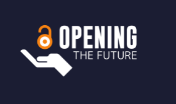2nd edition of the International Directory Organizations in Grey Literature
This 2nd Edition of International Directory Organizations in Grey Literature (IDGL) includes the organization’s URL (Uniform Resource Locator) and its ROR (Research Organization Registry) ID. The ROR-ID record further contains other persistent identifiers such as the organization’s GRID (Global Research Identifier), ISNI (International Standard Name Identifier), Crossref Funder ID, and Wikidata. Organizations are listed under the country in which they reside and appear in alphabetical order based on their name.


